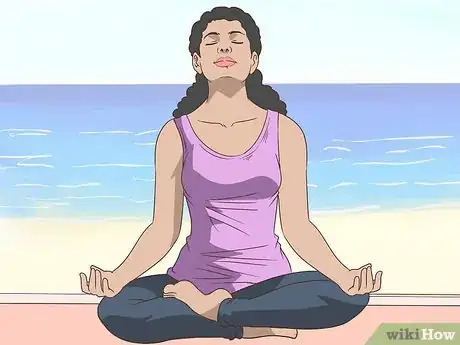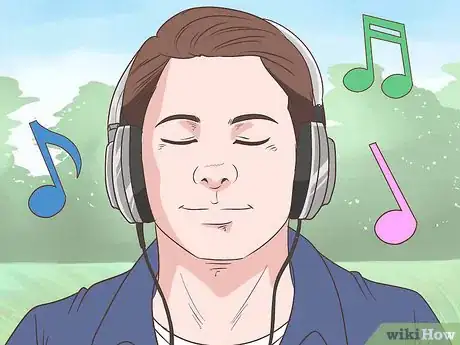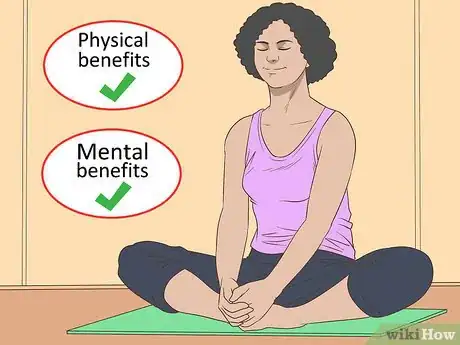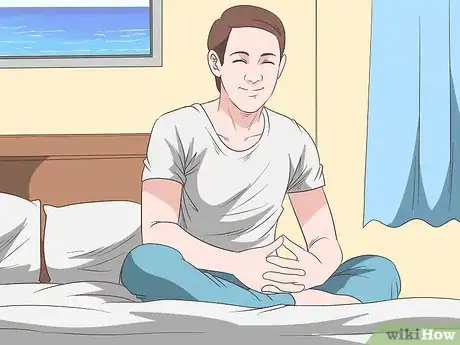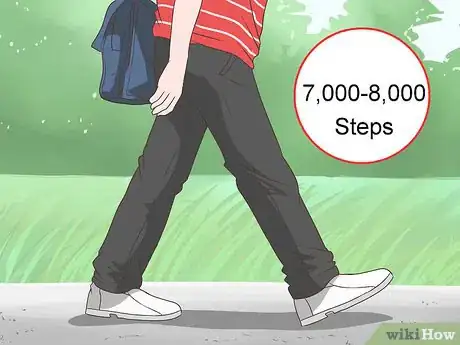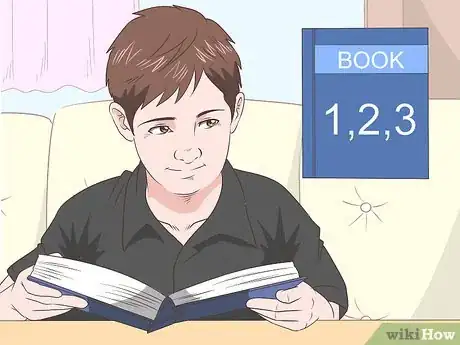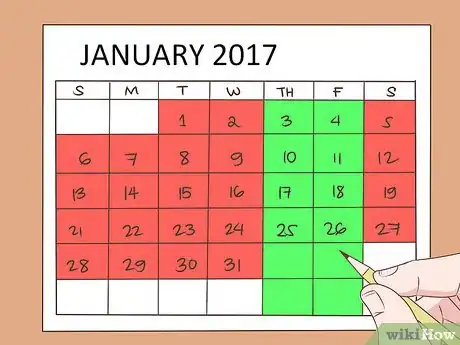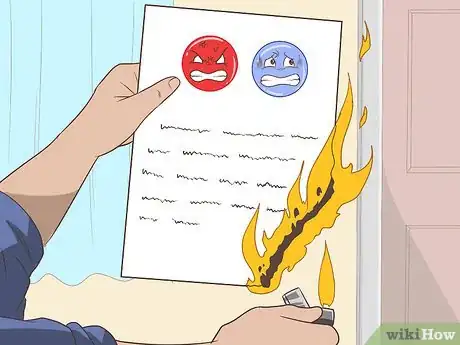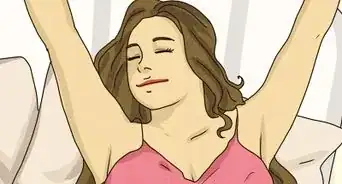This article was co-authored by Nancy Lin, PhD. Dr. Nancy Lin is a Licensed Clinical Psychologist and the Owner of Go to Sleep San Diego, a private practice providing therapy for people suffering from insomnia, trauma, depression, and related problems. She is also trained in issues related to cultural diversity in mental health. Dr. Lin holds a Bachelors degree in Psychology from The University of California, Berkeley and a Masters degree in Medical Anthropology from the University of London, SOAS. She earned her Ph.D. in Clinical Psychology from The University of Massachusetts Boston and completed an APA-accredited internship and postdoctoral training at the VA San Diego Healthcare System (VASDHS).
There are 12 references cited in this article, which can be found at the bottom of the page.
This article has been viewed 156,405 times.
We all need an escape from reality once in awhile. While we may not be able to jump on the next plane to an island-getaway, we all can escape from reality mentally. Because every mind is different, it may take some trial and error to find out how you best are able to mentally escape reality. Truly escaping reality using your mind takes practice, but can be a great way to feel reinvigorated and able to handle anything that life may throw at you.
Steps
Clearing Your Mind
-
1Meditate. Meditation is a fantastic way to clear your mind and escape reality; it is traditionally used to make the mind calm and peaceful.[1] Proper meditation enables you to take your mind into a calm space and put reality on hold.[2] . The best part is that meditation can be done in the comfort of your own home (or even bed) and requires no prior training or monthly membership.
- Choose a peaceful environment, preferably one without distractions. The temperature should be comfortable, it should be as quiet as possible, and you should be able to be alone for 30 minutes.
- Find a comfortable position. Many people like to lay on the floor with their bodies relaxed, their feet pointed outwards, and their palms facing upwards. There is no “right” position in which to meditate, so find a position in which it is comfortable for you to lie still. You can also try the lotus position.
- Close your eyes. This allows you to tune out anything that is going on around you. If necessary cover your eyes with a mask or a towel. If you are in a noisy place, it may help to wear earplugs. Think of nothing. Relax completely, let your mind go free.
- Be aware of your breathing. Don’t necessarily try to control your breath, but simply breathe and be aware of it.[3]
- Expect good meditation to take practice. At first, it is almost inevitable that your mind will wander. However, with practice, you will be able to completely clear your mind during your period of meditation. When your mind does wander, bring your focus back to your breath.[4]
- Consider using downloadable meditation programs. Simply go to Google or YouTube and search for “meditation.”
- Even if you don't have time to meditate, take a few minutes to take a breath and reorient yourself before tackling your problems again.[5]
-
2Listen to music. Listening to music is a fantastic way to clear your mind and make a mental escape from reality. Music has been scientifically shown to affect many different areas of the brain, and it can actually help you achieve self-awareness and regulate your mood.[6] [7] It is also a commonly used tool to engage in escapism.
- If you are unsure of what type or genre of music to listen to, you can try to listen to ambient music or binaural beats.
- For example, try Dr. Christopher Lloyd Clarke’s relaxation music or The Tranquil Harp: Improvisations for Relaxation, Meditation, Integration by Paul Baker.
- If you desire something different, try classical music, such as piano concertos, or listen to Gregorian chants.
- For something more lively, try listening to drum and bass music that has no lyrics.
Advertisement - If you are unsure of what type or genre of music to listen to, you can try to listen to ambient music or binaural beats.
-
3Practice yoga (or another calming physical activity). In addition to having physical benefits, yoga has mental and psychological benefits as well. It is an activity in which the participant focuses on breath and body instead of on the worries and stressors associated with reality. Yoga is a great way to have some personal time, clear your mind, temporarily escape your reality, and get a workout in as well.
- If you’ve never practiced yoga before, do a Google search to find a studio around you. Attend a class for beginners, and try to incorporate yoga into your routine. Many yoga studios will allow you to attend a trial class for free.
- Talk to the instructor of your first yoga class. He or she may be able to make some recommendations for types of yoga that will help you with your goal of mentally escaping reality.
- To make your own ‘yoga studio’ all you need is a yoga mat, water bottle, and a room that gives you space to lay out your mat. Pick up the necessary accessories from a local store, and [Do Yoga for Absolute Beginners|try yoga]] on your own in the comfort of your own home.
- Keep in mind that you may not feel the sensation of escaping reality the first time you try yoga. It will take consistent practice to make yoga an activity that helps with your mental state.
- If you’ve never practiced yoga before, do a Google search to find a studio around you. Attend a class for beginners, and try to incorporate yoga into your routine. Many yoga studios will allow you to attend a trial class for free.
-
4Chant. Chanting can be a powerful way to temporarily escape from reality. Performing chanting, or mantra meditation can allow you to mentally “remove” yourself from your mind, thereby mentally escaping reality.
- Chanting inspires a “relaxation” response. This means that your heart rate, brain waves, and respiration will become slower.[8] This physical response can actually make you feel like you are leaving reality behind.
- Chanting the mantra “Om” is said to be extremely calming to the mind, actually inciting the release of relaxing hormones.[9] This is because the “Om” sound sends vibrations through your lips and palate and into the back of your throat.
-
5Allow yourself to daydream. Daydreaming constitutes the ultimate mental escape from reality, but many of us don’t have the time to allow ourselves to drift into a daydream world. Daydreaming not only helps you mentally escape reality, but also plays an important role in allowing us to recognize our own potential, achieve a greater sense of identity and personal meaning, and enhance our self-control and creativity.[10]
- Allow yourself to daydream when the external environment is undemanding.[11] This can be while you’re running on a treadmill, sitting in a traffic jam, or ironing clothes.
- Let your mind truly wander. This means that you shouldn’t try to control your daydreams- there is no “right” or “wrong” daydream to have.
- Keep daydreaming. Studies show that we daydream less as we get older. However, this should not be so: daydreaming is the easiest way to mentally escape reality and requires nothing more than some time alone with your thoughts.
Using Activity for Mental Escape
-
1Spend time alone. As your partner, colleagues, and children are potentially a part of your everyday life, escaping reality means leaving them behind temporarily and refocusing on yourself. Because the society that we live in is perceived by most to be hectic and filled with stressors, spending some dedicated time alone can help you to refresh your mind and be more ready to handle reality when you return.[12] Solitude allows your brain to “reboot.”[13]
- Turn off your phone and sign out of your social media. When you are no longer “connected” to everyone and everything, you will find yourself much more able to mentally escape reality.
- Wake up 30 minutes before anyone else and enjoy the peace and quiet of the morning. Use that time to reflect, meditate, and daydream.[14]
- Make alone time a priority. Many of us spend the majority of our day catering to others, whether colleagues, family, or friends. Make it a point to set aside a block of time each day to allow yourself some time to escape your otherwise hectic reality.[15]
-
2Try a calming, repetitive activity. Instead of passively allowing your mind to wander, some people may find it helpful to actively engage in an activity that they can associate with a mental escape from reality. There are a wide range of activities that can facilitate an escape from reality.
- Try painting or knitting. The repetitive motion may help you find peace and solace and allow your mind to wander away from reality.
- If you’re looking to get exercise at the same time, go for a walk. Walking for 7,000-8,000 steps each day is great for your physical health and if you use your walking time to also meditate, daydream, or otherwise escape reality, you will be benefitting your mind as well as your body.[16]
- If you want to enjoy the outdoors, try hiking, fishing, or gardening. Being in nature can be another avenue for your mental escape of reality.
- There is no “best” activity to help you mentally escape reality; however, you should always do something that you enjoy. Some people may find the best way to mentally escape reality is to go skydiving or snorkeling, while others may enjoy playing a computer game or putting together a puzzle.
-
3Read a book. Books are a fantastic avenue for escapism because they allow you to escape your reality and enter another world without ever leaving your sofa.[17] Choose a book from your favorite author, a time-honored classic, or a best-seller.
- Find a book that takes you into a make-believe world. This could be a fictional world, such as that of Harry Potter or Lord of the Rings, or a book that takes place in another time or location, such as a work of historical fiction.
- Choose a series (something available in a trilogy or more) for an even longer escape from reality!
Taking Yourself on a Mini-Retreat
-
1Set aside some dedicated time. While it would be ideal to have 1-2 days to make a mental escape from reality, even a few hours will suffice!
-
2Choose a location. It can be a location that you associate with a sense of calmness and peace or it can be a place you’ve never been to before.
- Consider outdoor options, such as a cabin in the woods.
- You may want to try going to the seaside, which many people find to be very calming.
- If you're looking for total relaxation, consider going to a monastery for peace and quiet in an austere environment.
-
3Take along a journal. Write down your thoughts, feelings, and emotions. Write letters to people who have hurt you, and burn them if you want to. Write down your fears and bury them in the forest. These small activities can help you refocus and re-center while you are on your retreat.
-
4Do something you enjoy. Take a long drive in the country, go to a movie, sit by a bonfire, try a new beer, visit a museum. Treat yourself to something that you normally wouldn’t have the time to do in your reality.
-
5Stop and smell the roses. The goal is to slow down from the pace of your “real life” and embrace the world around you. This can be especially enjoyable when you are in a new place thanks to your mini-retreat.
- Sit back and observe and appreciate all the beauty of life around you.
- Think about the good things in your life, and let go of the rest, even if only temporarily.
- Take a slow walk, look at the landscape, feel the breeze, hear the birds sing- do anything you don't normally take the time or have the patience to do!
References
- ↑ http://www.how-to-meditate.org/why-learn-to-meditate.htm/
- ↑ http://blog.californiapsychics.com/blog/2015/08/7-ways-escape-your-reality.html
- ↑ http://life.gaiam.com/article/meditation-101-techniques-benefits-beginner-s-how
- ↑ http://life.gaiam.com/article/meditation-101-techniques-benefits-beginner-s-how
- ↑ Nancy Lin, PhD. Licensed Clinical Psychologist. Expert Interview. 27 May 2021.
- ↑ http://www.fastcompany.com/3022942/work-smart/the-surprising-science-behind-what-music-does-to-our-brains
- ↑ http://www.ncbi.nlm.nih.gov/pmc/articles/PMC3741536/
- ↑ http://www.shiftyourlife.com/2010/the-science-behind-mantra-chanting-by-jonathan-goldman/
- ↑ http://www.thehealthsite.com/diseases-conditions/10-health-benefits-of-chanting-the-gayatri-mantra-pa1214/
- ↑ http://www.alternet.org/personal-health/amazing-benefits-daydreaming-mind
- ↑ http://www.alternet.org/personal-health/amazing-benefits-daydreaming-mind
- ↑ http://www.skillsyouneed.com/rhubarb/time-alone.html
- ↑ https://www.psychologytoday.com/blog/high-octane-women/201201/6-reasons-you-should-spend-more-time-alone
- ↑ https://www.psychologytoday.com/blog/high-octane-women/201201/6-reasons-you-should-spend-more-time-alone
- ↑ https://www.psychologytoday.com/blog/high-octane-women/201201/6-reasons-you-should-spend-more-time-alone
- ↑ https://www.humana.com/learning-center/health-and-wellbeing/healthy-living/walking-for-health
- ↑ http://blog.californiapsychics.com/blog/2015/08/7-ways-escape-your-reality.html
